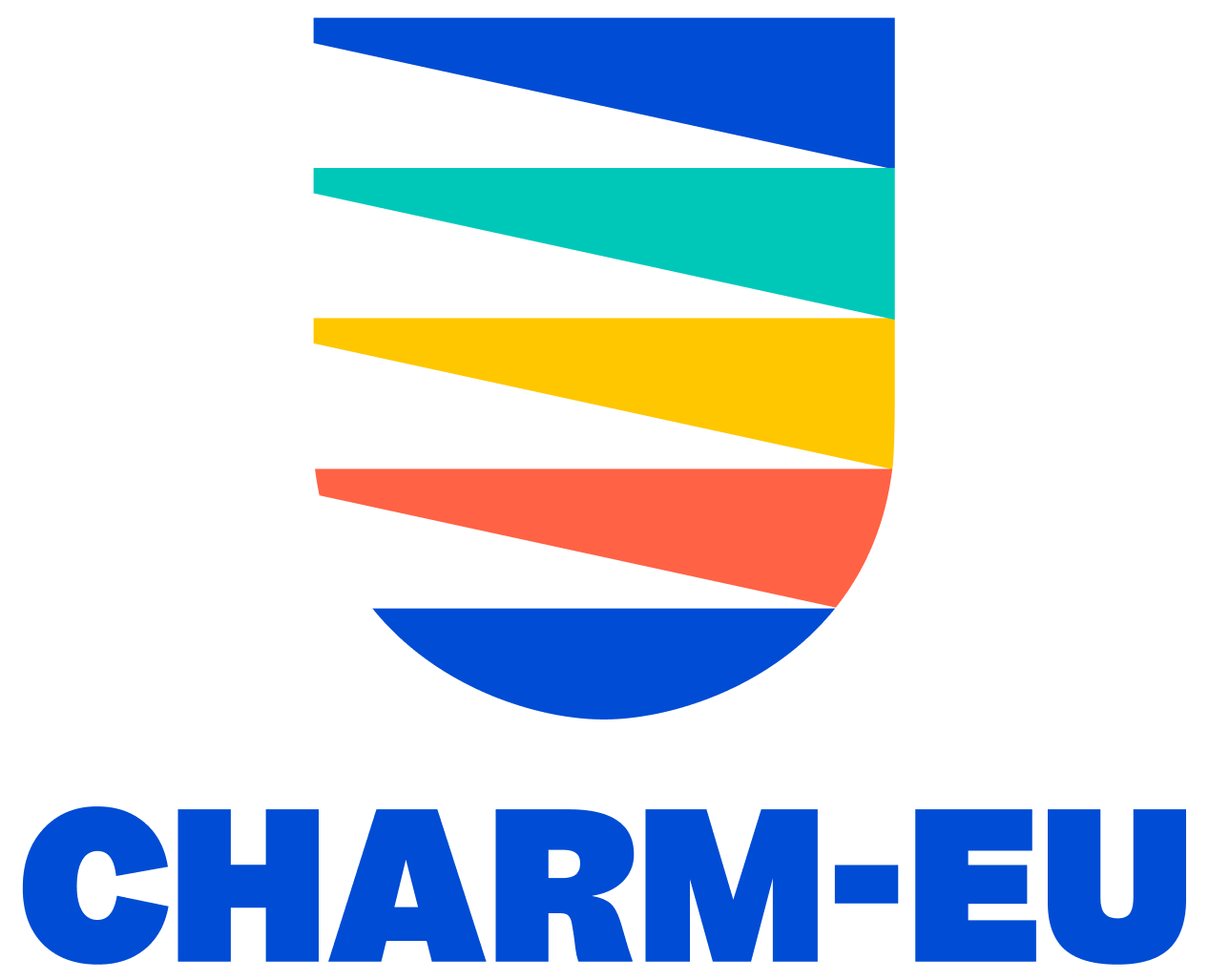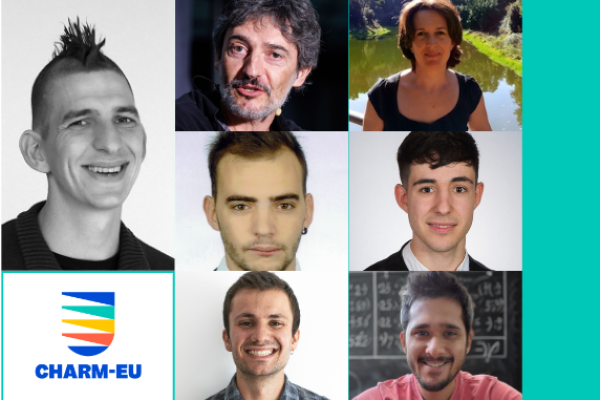As part of CHARM-EU’s mission to promote and mainstream comprehensive Open Science practices, the Alliance established the Open Science Recognition Award in 2023 to recognize the contributions of individuals engaged in research or teaching in our partner universities who have demonstrated a strong commitment to Open Science. After an intensive period of planning related to the R&I dimension of CHARM-EU, the call was published for the second time in 2025, this time with an individual and a team category.
The international jury chose Data Management Coordinator Dr. Korbinian Bösl from the University of Bergen’s Computational Biology Unit (Department of Informatics) as the winner of this year’s Award in the individual category. Building and promoting open scientific data infrastructure and culture at the University of Bergen, nationally across Norway, and internationally via European initiatives has been in the centre of Dr. Bösl’s career. As Data Management Coordinator at the Computational Biology Unit (UiB) he has been leading data stewardship activities in ELIXIR Norway and the Centre for Digital Life Norway since 2019, promoting cultural and practical transitions towards open science and open data sharing within the Norwegian and European life science communities.
“To me, Open Science represents the ideal form of scientific practice—collaborative, transparent, and unhindered by barriers such as intellectual property constraints. It enables research data to be shared freely, amplifying the value of science not only within academia but also across industry and society. Many of today’s innovations and services would simply not be possible without access to open, publicly available data.” – Dr. Korbinian Bösl
His efforts also include work on responses to consultations on life science data from ministries, the Research Council of Norway, and international bodies such as the WHO and the European Commission, contributing to guidelines and legislation supporting open access to research data, the development of shared infrastructures, the explicit promotion of FAIR principles, and the protection of private data. He has also been actively engaged in the European Open Science Cloud community. He is very active in capacity building, having organised and delivered more than 16 national Data Management Planning workshops, reaching over 500 PIs, postdocs and PhD candidates, and has been part of several other initiatives at the University of Bergen and in the international space.
“Making Open Science a reality requires both institutional change and individual learning. We need to work actively with support structures—many standard collaboration and subcontracting agreements are still not designed for open licensing and remain restrictive. Technology Transfer Offices (TTOs) should also broaden their focus to include open innovation models that go beyond patents as the primary commercialization path. Many open-source projects have already shown that openly licensed work can coexist with sustainable business models.” – Dr. Korbinian Bösl
In the team category, the jury chose the team of OpenSystems of the Department of Condensed Matter Physics at the University of Barcelona. OpenSystems is led by Professor Josep Perelló, the team includes Isabelle Bonhoure, Ferran Larroya, Ivan Casanovas, Marc Sadurní and Martin F. Díaz. OpenSystems is a transdisciplinary research group that co-produces knowledge with communities sharing a social concern, acting as a community builder embedding openness in governance, methods, training, data, and policy engagement. This approach surfaces in a series of flagship projects, capacity-building initiatives, and institutional roles that collectively advance Open Science principles.
“Open Science, and in particular citizen science, is central to us as we always address issues of concern raised by communities and groups. In our work, citizen science data and participatory practices are often the only effective way to tackle complex challenges, such as understanding social support networks in mental health or assessing thermal perception among vulnerable neighbourhoods. Open Science, in our citizen science projects, also means ensuring that data and results remain accessible to everyone, while also developing and sharing new methods and protocols that make research more participatory, inclusive, and socially relevant.” – Dr. Josep Perelló (OpenSystems)
The project CoAct – Co-designing Citizen Social Science for Collective Action (Horizon 2020) placed marginalized communities as equal co-researchers in socially urgent inquiries. CoActuem per la Salut Mental via a Telegram chatbot co-designed with 32 people with lived experience was awarded the European Union Prize for Citizen Science 2024 in digital communities. The group has established various other projects and initiatives engaging a broad community. It has also institutionalised capacity building via an accredited training program in “Citizen Science with Social Commitment” (UB, 2023 and onward), developed in the context of the TORCH project of the CHARM-EU Alliance. The group is a founding member and has coordinated the Barcelona Citizen Science Office (2012–2019), a founding member of the European Citizen Science Association.
“The most important lesson we have learned is to never begin a project without first engaging with and listening to the communities concerned. Co-created projects—developed in partnership with non-academic actors and specific communities—lead to better science: it is then possible to generate deeper reflections, more innovative science, and ultimately produce more meaningful and impactful outcomes.” – Dr. Josep Perelló (OpenSystems)
Members of the jury (Open Science experts coming from the different partner universities of CHARM-EU) were in agreement that the selection of the winners was challenging due to the promising applications that were quite different in nature. They recognized the proposal of Dr. Tamás Nagy (assistant professor at ELTE’s Department of Personality and Health Psychology) at the second place in the individual category for his engagement in the promotion of Open Science practices and principles in his research, teaching, talent management and meta-science leadership activities. The third place in the individual category was given to Dr. Balázs Székely (associate professor at ELTE’s Department of Geophysics and Space Science), for his achievements in Open Science related to his editorial work, contributions to data bank development, and contributions to popular science.
As for the award of the present call, the individual awardee will have the opportunity to visit one of the partner universities of CHARM-EU for a study trip in order to consult with local Open Science experts on strategies and practices for promoting Open Science. The group can chose between one team member visiting a CHARM-EU partner with similar purposes or inviting an expert from a CHARM-EU partner to their institutions. Our warmest congratulations to Dr. Bösl and to the OpenSystems team for their outstanding achievements!

